
Stockbyte/Stockbyte/Getty Images
Certain vitamins and minerals play a vital part in maintaining the health of your hair. Vitamin D, for one, is required to ensure the proper cycling of the hair follicles and to promote hair growth. Adults should have an intake of at least 600 international units or 15 micrograms per day, and the upper safe limit is considered 4,000 international units or 100 micrograms per day, according to the National Institutes of Health Office of Dietary Supplements. Too little of this nutrient -- which comes from the sun, cod liver oil and fortified milk products -- can have a negative effect on hair follicles.
Life Cycle
Vitamin D helps maintain the hair-growth cycle, from the growth phase to the regressing phase to the resting phase. Vitamin D regulates epidermal proliferation and differentiation, and the receptor that is required for normal hair follicle cycling, according to Veronica D. Stolzt, author of "Vitamin D: New Research." When a deficiency of vitamin D occurs, hair may appear damaged or may fail to grow.
Lack of Growth
Vitamin D impacts hair follicles through the stimulation of hair growth. It seems that without enough vitamin D in the hair follicles, hair growth may slow or hair may stop growing altogether. A 2002 study at the University of California Los Angeles School of Medicine published in the journal "Endocrinology" found that vitamin D3 seems to stimulate hair growth in mice that otherwise do not grow hair. To do this, vitamin D3 even created the growth of new hair follicles.
Vitamin D Characteristics
Vitamin D is a fat-soluble vitamin, which means that excess amounts are stored in the fat of the body, rather than being flushed out of the system. Although vitamin D deficiencies are more common -- some studies estimate that more than half of Americans are deficient -- an overdose of vitamin D can occur.
Vitamin D levels can be determined through blood tests performed by a doctor. Work closely with a health-care practitioner to determine whether slow-growing hair may be connected to low levels of vitamin D.
Related Articles

What Are the Benefits of BioSil?

What Vitamins Help the Liver?

Can You Decrease Sebum With Vitamin A?

How to Control Frizzy Hair for ...
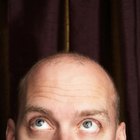
Chlorella and Hair Loss
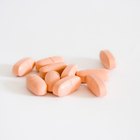
Vitamins for Damaged Hair

Can Supplements Reverse Gray Hair?

What Foods Provide Calcium D-Glucarate?
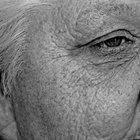
Facts on Natural Hair Changing Color
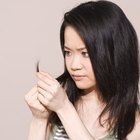
Can Vitamins Stop Hair Breaking?

How to Reduce Acne Inflammation
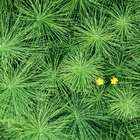
Horsetail vs. BioSil

Ingredients in Hairfinity Vitamins
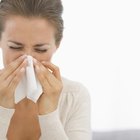
The Best Vitamins for Sinuses

How to Control Sebum in Hair with ...
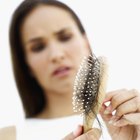
Is Zinc Good for Hair Growth?

Does Borage Help with Thinning Hair?

What Are the Causes of Hair Shedding in ...
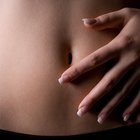
How to Get Rid of Stomach Hair ...

Can Drinking Nettle Tea Reduce DHT ...
References
- National Institutes of Health Office of Dietary Supplements: Vitamin D
- PubMed: Vitamin D3 Analogs Stimulate Hair Growth in Nude Mice
- What the Drug Companies Won't Tell You and Your Doctor Doesn't Know; Michael T. Murray
- Vitamin D: New Research; Veronica D. Stolzt
Writer Bio
Christine Garvin is a certified nutrition educator and holds a Master of Arts in holistic health education. She is co-editor of Brave New Traveler and founder/editor of Living Holistically... with a sense of humor. When she is not out traveling the world, she is busy writing, doing yoga and performing hip-hop and bhangra.
Photo Credits
Stockbyte/Stockbyte/Getty Images